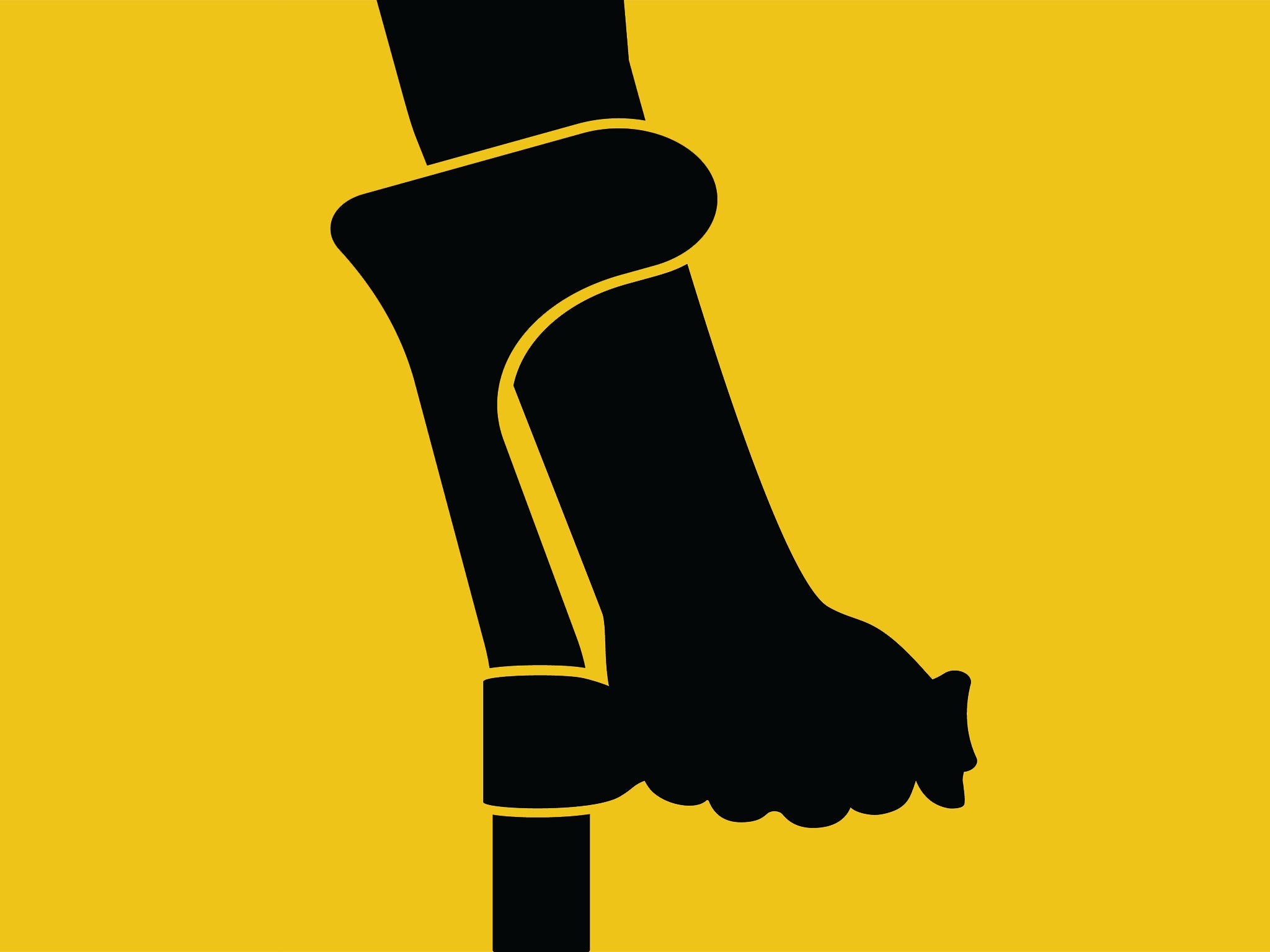My Carbon Footprint: Tarzan and the case of the missing crutch
The NHS pledge to be the first net-zero national health service by 2040 is under serious threat if current ‘take-make-dispose’ practices aren’t changed, says Kate Hughes


When your youngest child comes barrelling through the back door, ashen-faced and panting from running as hard as his little legs can go, the words you really, really don’t want to hear are “she’s broken her neck”.
I’ve never moved so fast. Or felt so sick while doing it. Apart from maybe the time I ran for the night bus after celebrating my 20th.
I can be flippant now because the sprint to his sister’s side at the bottom of the tree in the garden revealed that “neck” meant wrist, and “broken” turned out to be a bad sprain. Further investigation suggests she had attempted some sort of Tarzan-style dismount from a branch above her head. Way above her head.
Still, she was badly winded and her wrist was blowing up, so off we dutifully trundled to A&E, or rather, the local cottage version of such facilities where, lovely though they were and very professional, an X-ray was impossible because it wasn’t nine to five, Monday to Friday.
Instead, she got a sort of hard, more-than-a-sling-less-than-a-cast effort to wear for a few weeks. After roughly 48 hours, having decided she was completely cured despite the admiring glances such equipment had drawn from her classmates, off it came.
So now what? When I asked the doc what the process was for returning the... I’m going to settle on splint... he looked at me blankly and said I didn’t need to. That they had more.
(He actually said the NHS had plenty of money to buy more, which I don’t think is quite the message this week’s National Insurance hike is conveying, nor was that the point of the question.)
So here it is, sitting on my desk. Out of the corner of my eye, I can almost see the crutch that was in the house when we moved in last month too.
Crutches, along with walking frames and the like, are a short-term loan from the NHS, which should be returned to be sanitised and reissued. Except that we often don’t. Thousands of pairs of crutches never make it back to their NHS trust homes.
Every so often they will issue a crutch amnesty, spurred on by huge bills for new equipment – not that we’re going to wait for one of those.
The splint, though, (RRP £16.50) is more tricky. There’s the cost of all these redundant items floating about, but what about the carbon footprint?
Last week, as it happens, a report from the University of Exeter warned that the NHS pledge to be the first net-zero national health service by 2040, with an 80 per cent reduction in net carbon by 2032, was under serious threat if current “take-make-dispose” practices weren’t changed.
That includes single-use products, (which we’ve discussed here before and that I’m reluctant to take on without several degrees in epidemiology I don’t have) but it also includes the premature disposal of medical equipment. Or, it strikes me now, the loss thereof.
In fact, if medical equipment could be more widely repaired, refurbished, remanufactured, and product life extended, it could reduce each item’s carbon footprint by up to 85 per cent over its lifetime, without any compromise on patient safety or equipment performance.
I can’t help thinking that refocusing on a circular economy makes a lot of sense for a health service that will have to – indeed already is – deal with the increase in ill-health and disease stemming from climate change and environmental pollution.
None of which solves this week’s splint problem. Luckily, a quick internet search does. And then some.
There’s no doubt that our first port of call should always be the NHS department that supplied the equipment, but if they don’t want it back, there are some excellent options to explore before the recycling centre or the bin.
We’re talking about prosthetic limbs (Legs 4 Africa), wheelchairs, walking sticks, crutches, even hearing aids (DESO) and unused ostomy items (Jacob’s Well Appeal) that are sent to medical centres overseas, or items sometimes accepted by UK-based disability and age charities like Age UK.
Just be sure to check they want your particular items in advance. They’ve got enough on their plates without becoming refuse collectors.
As for the splint, I’m hoping it can go to DESO, via one last check with the NHS. Assuming I can extract it from the kids’ prop-heavy games of hospitals, that is.
Going Zero: One Family’s Journey to Zero Waste and a Greener Lifestyle, by Kate Hughes, is out now.
Join our commenting forum
Join thought-provoking conversations, follow other Independent readers and see their replies
Comments
Bookmark popover
Removed from bookmarks